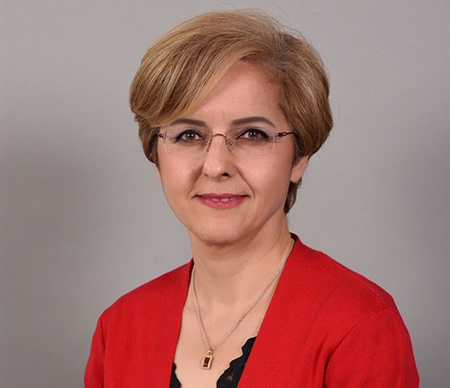
Dr Sara Javanparast is a general practitioner (trained and practiced in Iran) with over 13 years of experience in public health and primary health care research in Australia. In this article, she shares her passion about health equity, her past research experiences and her views about equity and social determinants in end-of-life care.
What is your main research area, and how did you first get interested in it?
I am interested in equity in access to primary health care services, community engagement and social determinants of health inequity particularly amongst population groups experiencing disadvantage. My interest originally came from many years of working as a general practitioner in rural primary health network in Iran. During that time, I realized that as a doctor how limited my understanding was beyond just putting my patients’ physical pains together to diagnose a medical condition and prescribe the right medicine for treatment. There was not much scope to learn in medical schools about what is now called ‘causes of causes’. Working with rural communities and health workers provided me the opportunity to learn from people whose pains were not rooted in genetic or physiological problems, but were caused by the lack of living facilities, unemployment, and insufficient food – in brief, by poverty. Part of my personal interest also originated from my late father’s extensive work in combating tuberculosis in Iran and his vision and commitment to the social environment of his patients which have always inspired me since my childhood.
After moving to Australia in 2001, I did my PhD in public health, and since then have worked as a public health researcher at Flinders University. I’ve continued to embrace my interests and passion by undertaking research that has focused on primary health care, community development, community-based health workers, access and equity.
How do you envision it to help improve end-of-life care?
I have recently joined RePaDD and am still learning about end-of-life policy context and practice in Australia. I strongly believe that taking equity and social determinants of palliative care into consideration is critical to ensure that all Australians receive high quality, safe and culturally appropriate end-of-life care. Bringing an equity lens to end-of-life policy development, research, practice and evaluation is an area that I am very much interested in. Coming from a culturally diverse group myself, I understand how important it is to work closely with patients and families from diverse socio-cultural backgrounds to understand their views around end-of-life, death and dying in order to design models of care that work and sustain.
What are the next steps in terms of rolling out and further collaboration?
As my first project in RePaDD, I have started a research to undertake an equity focused assessment of the end-of-life policies in Australia. I am interested to see how equity has been defined and considered in national and jurisdictional end-of-life policies, how this has changed over time and why (examining the regulatory context, actors and ideas that influence equity-oriented policy) and more importantly, the extent to which these are translated into end-of-life practice and models of care. I hope to find ways to identify evidence gaps and develop a stream of research around equity and social determinants of end-of-life care and to further collaborate with key stakeholders and communities to identify end-of-life needs and models of care that are able to address those needs.
What was your most recent/most important publication and why did it excite you?
I find conceptual frameworks very useful to better understand and visualise interactions between different contextual, organisational and individual level factors and also the complexity of health care systems. Two of my papers that I published with my colleagues present conceptual frameworks that we developed as part of a large NHMRC project to demonstrate various actions to address health inequity and to determine the extent to which regional primary health care organisations are comprehensive. In this project, we worked with Primary Health Networks across Australia and investigated population health planning and equity in relation to Indigenous health, migrant health and mental health. These conceptual frameworks can be easily adapted to end-of-life care and actions to address inequities.

